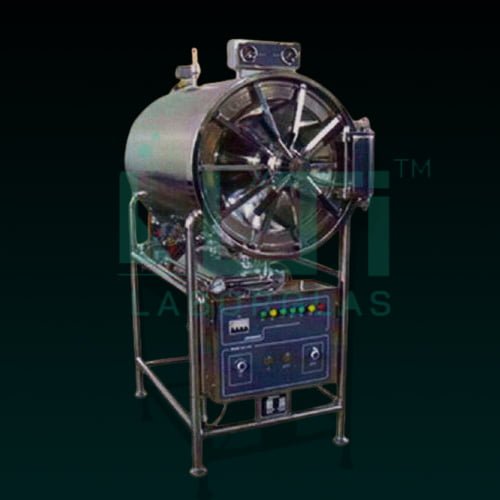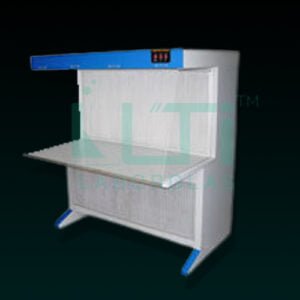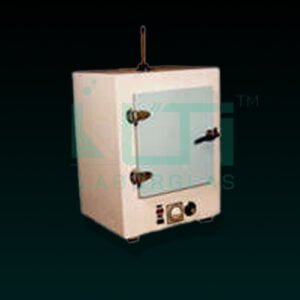Product Details:
| Insulation Wall | Triple Wall |
| Material | Stainless Steel |
Inner chamber is made of SS .Jacket, Outer Chamber, lid ring, radial system, piping and Boiler are made of SS 304. The pressure is controlled by pressure stat and indication by temp. gauge also provided with all safety norms as per IS standards. Glycerine filled SS gauges are provided at top for chamber & jacket. Control panel is complete with on/off switches, indicators. Supplied with complete IQ, OQ & PQ documentations.
A Stainless Steel (SS) Horizontal Cylindrical Autoclave is often used in laboratories and industrial settings for various purposes, including:
- Sterilization: It is widely employed for sterilizing laboratory equipment, glassware, surgical instruments, and other materials to eliminate bacteria, viruses, and other microorganisms.
- Research and Development: In scientific research, horizontal cylindrical autoclaves are utilized for conducting experiments, especially in microbiology, biotechnology, and related fields.
- Quality Control: Industries use autoclaves to ensure the sterility of products, such as pharmaceuticals, medical devices, and food packaging, as part of quality control processes.
- Curing Processes: Some manufacturing processes, like curing polymer composites or other materials, may require the use of autoclaves under high pressure and temperature.
- Agar Preparation: Autoclaves are commonly used in microbiology labs for preparing agar media, which provides a nutrient-rich environment for the growth of microorganisms.
- Waste Sterilization: Autoclaves are employed for the safe disposal of biohazardous waste by sterilizing materials before disposal.
- Clinical Applications: In medical settings, horizontal cylindrical autoclaves are used for sterilizing surgical instruments, dressings, and other medical equipment.
- Heat Treatment: Autoclaves are used in various heat treatment processes, such as curing, bonding, and annealing, where controlled temperature and pressure are essential.
- Animal Research: In research involving animal studies, autoclaves are used to sterilize cages, bedding, and surgical instruments to maintain aseptic conditions.
- Dental Instrument Sterilization: Autoclaves are crucial in dental practices for the sterilization of instruments to prevent the transmission of infections.





